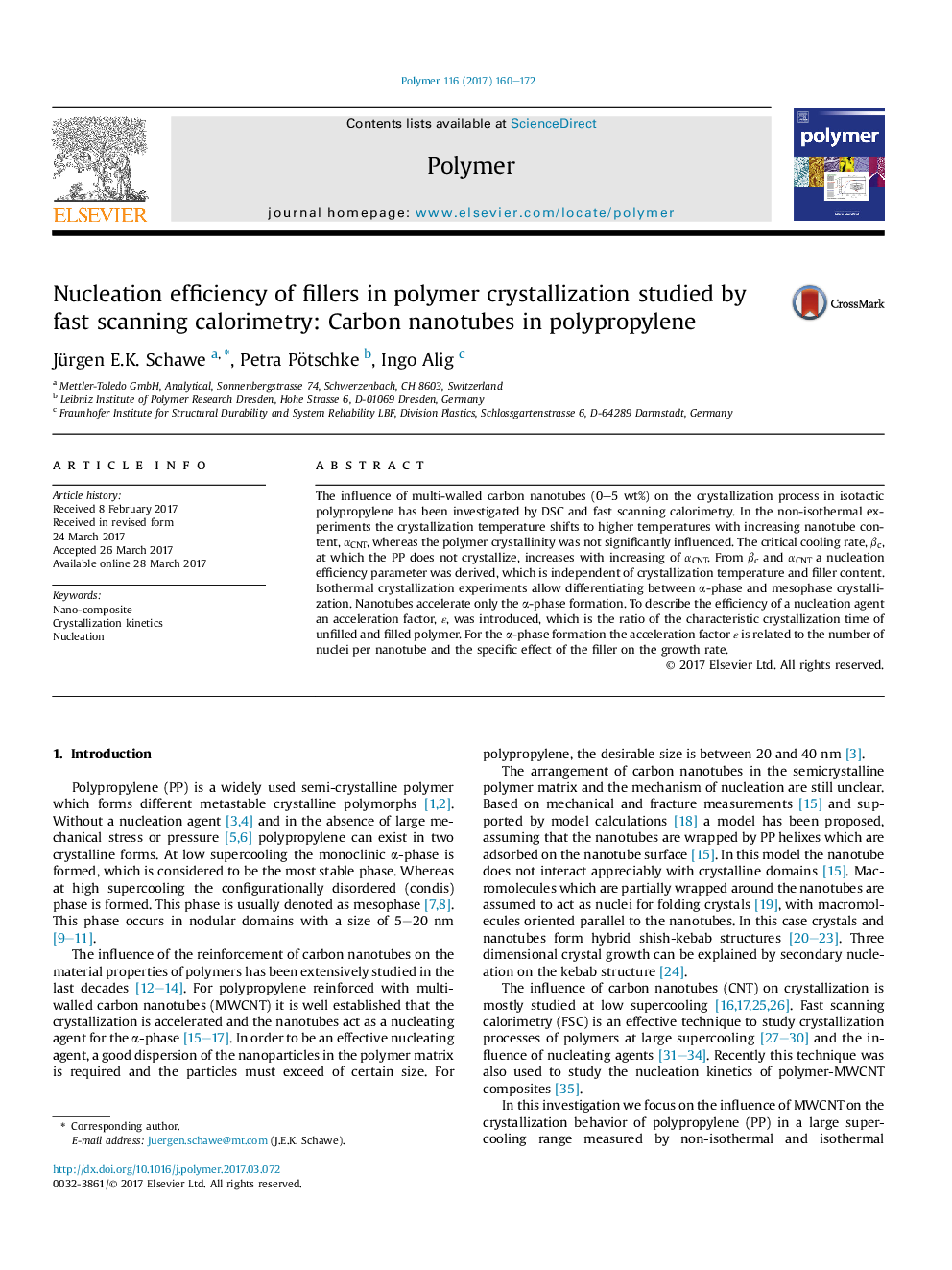| Article ID | Journal | Published Year | Pages | File Type |
|---|---|---|---|---|
| 5178191 | Polymer | 2017 | 13 Pages |
â¢Study of PP-MWCNT crystallization versus temperature, cooling rate and composition.â¢MWCNT accelerates the α-phase formation, but has no impact on mesophase formation.â¢Models are derived for the acceleration of crystallization due to nucleating agent.â¢The model parameters characterize the efficiency of a nucleating agent.
The influence of multi-walled carbon nanotubes (0-5 wt%) on the crystallization process in isotactic polypropylene has been investigated by DSC and fast scanning calorimetry. In the non-isothermal experiments the crystallization temperature shifts to higher temperatures with increasing nanotube content, αCNT, whereas the polymer crystallinity was not significantly influenced. The critical cooling rate, βc, at which the PP does not crystallize, increases with increasing of αCNT. From βc and αCNT a nucleation efficiency parameter was derived, which is independent of crystallization temperature and filler content. Isothermal crystallization experiments allow differentiating between α-phase and mesophase crystallization. Nanotubes accelerate only the α-phase formation. To describe the efficiency of a nucleation agent an acceleration factor, ε, was introduced, which is the ratio of the characteristic crystallization time of unfilled and filled polymer. For the α-phase formation the acceleration factor ε is related to the number of nuclei per nanotube and the specific effect of the filler on the growth rate.
Graphical abstractDownload high-res image (205KB)Download full-size image
